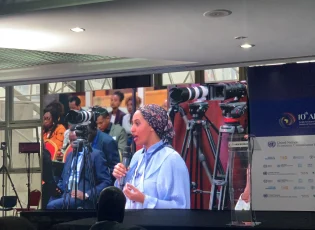Introduction:
The right to work is one of the most important economic and social human rights. It provides job opportunities for persons capable of working and ensuring fair and satisfactory working conditions. This right is considered a basic right and necessary for the implementation and realization of a wide range of other human rights, especially the right of humans to enjoy a decent standard of living, which is an integral rooted part of human dignity. Without the right to work, people are unable to meet their basic needs, such as food, shelter, clothing and other human requirements that a dignified life requires. Many international human rights instruments stipulate the necessity of implementing the right to work for all human beings, especially the Universal Declaration of Human Rights, Article 23 of which stipulates that “Everyone has the right to work, to freedom to choose his work, just and satisfactory work conditions, and in protection against unemployment,” besides the International Covenant on Economic, Social and Cultural Rights, which stipulates in Article 6 that every individual has the right to work, which includes the right of every person to have the possibility of earning his living by his freely chosen work.
There is a close connection between the right to work and the right to enjoy just and satisfactory conditions of work and related trade union rights. States should therefore commit to ensuring fair wages, respecting the principle of equal pay for work of equal value, and equal pay for work of equal value. It should also be ensured that workers receive a minimum wage that is sufficient to secure a decent standard of living for themselves and their families. Moreover, workers must enjoy safe and healthy working conditions that do not infringe on human dignity. A reasonable number of working hours must be determined for employees, in addition to their enjoyment of rest and leisure time and periodic paid vacations.
Although international human rights instruments have guaranteed the right to work for all individuals without discrimination, including the Universal Declaration of Human Rights and the International Covenant on Economic, Social and Cultural Rights, however, the right to work and protection from unemployment continues to face widespread violations in many countries worldwide. In the Gaza Strip, for example, repeated Israeli military attacks, as well as the siege and restrictions imposed by the Israeli occupation authorities on the movement of goods and individuals from and to Gaza nearly 16 years ago, caused and increase in the unemployment rates to unprecedented levels. According to the latest official statistics of Maat in this context, the unemployment rate in the Gaza Strip has reached about 46% due to the siege and restrictions imposed by the Israeli occupation authorities, meaning that the unemployment rate in the besieged Gaza Strip is among the highest levels in the world.
Within the framework of the 30 x 50 Human Rights for All Campaign launched by Maat for Peace, Development and Human Rights to raise awareness of the articles of the Universal Declaration of Human Rights, and coinciding with the wave of systematic violence unleashed by the Israeli occupation forces on the Gaza Strip, Maat presents this report, which focuses on the implementation of Article 23 of the Universal Declaration of Human Rights regarding the right to work and protection from unemployment, by focusing in particular on the impact of the siege and restrictions imposed by the Israeli occupation authorities on the right to work in Gaza Strip. In light of the above, Maat addresses two main axes, the first axis focuses on the right to work in international human rights conventions, while the second axis focuses on the impact of the siege on the right to work in the Gaza Strip, which we will discuss in detail in the two axes covered by the report.

 |
 |











